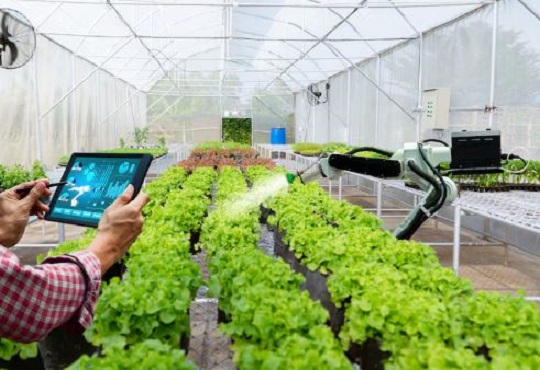Google launches AI tools for Indian farms & cultural heritage initiatives
CIOTech Outlook Team | Saturday, 12 July 2025, 03:23 IST

- Google launched the AMED API to boost AI use in Indian agriculture.
- Partnered with IIT-Kharagpur to build diverse language datasets.
- AI adoption remains low due to cost, small landholdings, and limited access.
Google announced an open-source artificial intelligence (AI) bundle with a focus on providing information for India's agriculture sector and recognizing the diversity of languages and cultures. The main launch was the Agricultural Monitoring and Event Detection (AMED) API, which serves as a detailed data source that reports crop types in each field, field activity, and seasonal activity across India.
Developed by Google DeepMind and the Partnerships Innovation team, the AMED API is a more elaborate version of the previous Agricultural Landscape Understanding (ALU) API that would use satellite imagery and machine learning to give greater agricultural insights. The AMED API also brings the added addition of three years of historical data to create better resilience and encourage better agricultural activity.
Dr Manish Gupta, Senior Director for India and Asia Pacific (APAC) at Google DeepMind said, "We've been inspired by the solutions India's innovators have unlocked with these capabilities, demonstrating AI to be a powerful catalyst for multiplier impact and unprecedented effectiveness".
Also Read: Huawei targets AI chip deals in emerging ME & SEA markets now
Simultaneously, researchers from the Google DeepMind team are working with IIT-Kharagpur as part of the Amplify Initiative to create a variety of datasets reflecting India's colourful diversity of languages and cultures to be used as another dataset for large language models (LLMs).
Although these technologies show potential promise, there has been limited uptake of them by smallholder farmers in India. A February 2025 report by the World Economic Forum outlined that less than 20% of Indian farmers are using digital technologies primarily because of the cost.
As the average Indian farmer earns $1500 yearly, in order to harness AI tools, they would first need to subsidize that expense, not to mention only considering AI tools after supporting basic financial needs for food, housing, and education. Given the fact that a staggering 85% (127.5 million) of India’s 150 million farmers cultivate less than 1.08 hectares, the cost of deploying AI solutions at scale becomes a chore.
Other enabling and infrastructure issues continue to reduce adoption, such as lack of validation mechanisms, infrastructure investment not occurring, and high costs of collecting real-time data. At this stage in the development of business models, the majority of the solutions based on AI aim to support larger or managed agribusiness farms, while smallholders remain largely disconnected.




